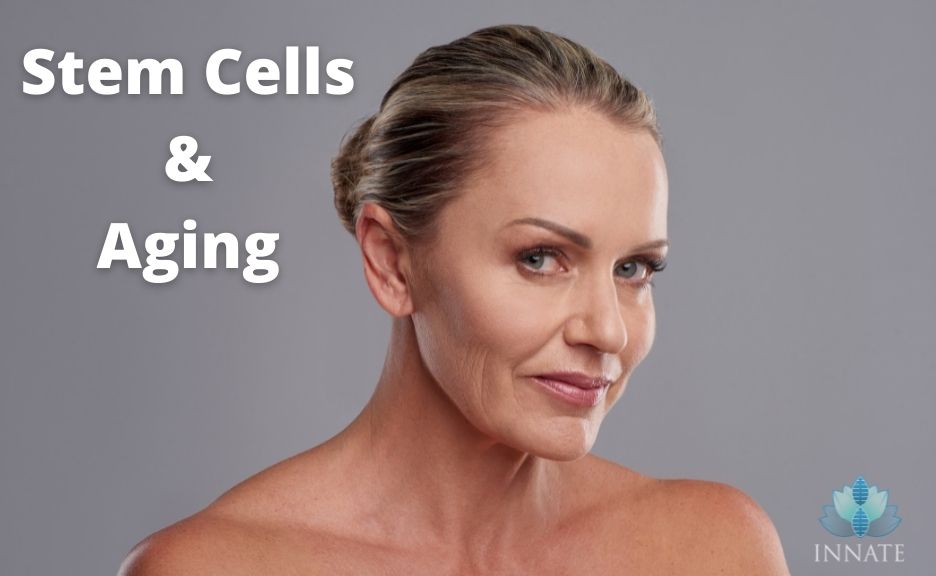Researchers have noted our brain’s stem cells decline with age. But some research has shown introducing fresh stem cells could slow down or reverse the aging process. Ask almost anyone if they’d love to feel or look younger and you’ll likely get a resounding “Yes!”.
A team from Albert Einstein College of Medicine had shown how crucial stem cells in the hypothalamus play in aging. By the time the mice used in the study had reached old age there was virtually no stem cells left in their hypothalamus region. To further investigate the roll of hypothalamus stem cells and aging they disrupted the stem cells in one group of mice and left another group of mice (the control) alone. The group with disrupted stem cells had accelerated aging and died earlier than normal. The team wanted to see if supplementing fresh stem cells into the brains of mice would reverse the aging process.
Behold, all of the mice that received stem cells saw the aging process was either slowed down, or different aspects of aging were counteracted altogether.
The researchers used exosomes collected from hypothalamic stem cells. They designed to test if aging could be slowed down by treatment with purified exosomes as verified via electron microcopy. Exosomes are extracellular particles released from stem cells that contain a variety of different material, including microRNA (miRNA), growth factors, and proteins. Essentially the cells seem to act like doctors distributing out medicine (exosomes).
The mice were analyzed for the aging effects through monitoring improvements in the specimens’ muscular endurance, cognitive abilities, and social behavior, as well as tissue samples that were taken. The researchers pointed out that the anti-aging effects seen were not the result of diet, as both the controls and stem cell group ate the same diet. That’s not saying diet doesn’t have an effect on aging. You can read more on the study here.
How Can Stem Cell Transplantations Help With Aging in Humans?
So, what does that mean for humans? Well, its certainly good news! We’ve already seen research into stem cell transplantations relieving signs of frailty and aging. This study allows us to add more data to the plausibility that umbilical cord mesenchymal stem cells (UC-MSCs) and/or umbilical cord mesenchymal stem cell derived exosomes can slow, or even reverse, some aspects of aging. For more info on stem cell transplantations and aging you can read my article here.
One way we target brain-specific anti-aging treatments at Innate Healthcare Institute is through using our pioneering intra-nasal approach to stem cell transplantation. This allows for a safe and effective delivery method that we’ve seen stellar results in conditions such as autism, dementia, and aging cognitive decline. The technique allows us to deliver regenerative biologics such as MSCs and exosomes to an area called the sphenopalatine ganglia (SPG), a collection of nerves that leads directly to the brain and other cranial nerves. This technique may one day even prove to be effective for vision loss since the SPG is connected to the optic nerve.
Why Choose Innate Healthcare Institute?
Innate Healthcare is a leader in stem cell therapy for various ailments. We only use the highest quality live UC-MSCs, following the latest among well-researched protocols to achieve the best results through stem cell therapy. Additionally, we tailor our approach to stem therapy for each patient to meet their unique needs. We also use a holistic approach that uses high and safe doses combined with other forms of healing to facilitate more effective results for your stem cell therapy.
Interested in exploring your treatment options using the best expertise in stem cell therapy? Contact us by clicking here or call us at 602.603.3118 to set up a complimentary consultation and exam. We will provide you with the best recommendation for treatment based on your unique requirements.

Resources:
Boyette, Lisa, and Rocky Tuan. “Adult Stem Cells and Diseases of Aging.” Journal of Clinical Medicine, vol. 3, no. 1, 2014, pp. 88–134., doi:10.3390/jcm3010088.
Cao, Ning, et al. “Clinical-Grade Human Umbilical Cord-Derived Mesenchymal Stem Cells Reverse Cognitive Aging via Improving Synaptic Plasticity and Endogenous Neurogenesis.” Cell Death & Disease, vol. 8, no. 8, 2017, doi:10.1038/cddis.2017.316.
Golpanian, Samuel, et al. “Allogeneic Human Mesenchymal Stem Cell Infusions for Aging Frailty.” The Journals of Gerontology: Series A, vol. 72, no. 11, 2017, pp. 1505–1512., doi:10.1093/gerona/glx056.
Golpanian, Samuel, et al. “Rationale and Design of the AllogeneiC Human Mesenchymal Stem Cells (HMSC) in Patients with Aging FRAilTy via IntravenoUS Delivery (CRATUS) Study: A Phase I/II, Randomized, Blinded and Placebo Controlled Trial to Evaluate the Safety and Potential Efficacy of Allogeneic Human Mesenchymal Stem Cell Infusion in Patients with Aging Frailty.” Oncotarget, vol. 7, no. 11, 2016, pp. 11899–11912., doi:10.18632/oncotarget.7727.
Kim, Dajeong, et al. “Health Span-Extending Activity of Human Amniotic Membrane- and Adipose Tissue-Derived Stem Cells in F344 Rats.” STEM CELLS Translational Medicine, vol. 4, no. 10, 2015, pp. 1144–1154., doi:10.5966/sctm.2015-0011.
Kim, Yoon-Jin, et al. “Conditioned Media from Human Umbilical Cord Blood-Derived Mesenchymal Stem Cells Stimulate Rejuvenation Function in Human Skin.” Biochemistry and Biophysics Reports, vol. 16, 2018, pp. 96–102., doi:10.1016/j.bbrep.2018.10.007.
Li, Wei, et al. “Anti‑Aging Effect of Fullerenol on Skin Aging through Derived Stem Cells in a Mouse Model.” Experimental and Therapeutic Medicine, 2017, doi:10.3892/etm.2017.5163.
Lin, Tsu-Kung, et al. “Mitochondrial Transfer of Wharton’s Jelly Mesenchymal Stem Cells Eliminates Mutation Burden and Rescues Mitochondrial Bioenergetics in Rotenone-Stressed MELAS Fibroblasts.” Oxidative Medicine and Cellular Longevity, vol. 2019, 2019, pp. 1–17., doi:10.1155/2019/9537504.
Rando, Amaya, et al. “Intramuscular Transplantation of Bone Marrow Cells Prolongs the Lifespan of SOD1G93A Mice and Modulates Expression of Prognosis Biomarkers of the Disease.” Stem Cell Research & Therapy, vol. 9, no. 1, 2018, doi:10.1186/s13287-018-0843-z.
Schulman, Ivonne Hernandez, et al. “Mesenchymal Stem Cell Therapy for Aging Frailty.” Frontiers in Nutrition, vol. 5, 2018, doi:10.3389/fnut.2018.00108.
Tompkins, Bryon A, et al. “Allogeneic Mesenchymal Stem Cells Ameliorate Aging Frailty: A Phase II Randomized, Double-Blind, Placebo-Controlled Clinical Trial.” The Journals of Gerontology: Series A, vol. 72, no. 11, 2017, pp. 1513–1522., doi:10.1093/gerona/glx137.
Tompkins, Bryon A, et al. “Allogeneic Mesenchymal Stem Cells Ameliorate Aging Frailty: A Phase II Randomized, Double-Blind, Placebo-Controlled Clinical Trial.” The Journals of Gerontology: Series A, vol. 72, no. 11, 2017, pp. 1513–1522., doi:10.1093/gerona/glx137.
Wong, Tzyy Yue. “Molecular Mechanism of Extrinsic Factors Affecting Anti-Aging of Stem Cells.” World Journal of Stem Cells, vol. 7, no. 2, 2015, p. 512., doi:10.4252/wjsc.v7.i2.512.
Y, Zhang, et al. “Hypothalamic Stem Cells Control Ageing Speed Partly through Exosomal MiRNAs.” Yearbook of Paediatric Endocrinology, 2018, doi:10.1530/ey.15.1.3.
Yang, Yueh-Hsun Kevin. “Aging of Mesenchymal Stem Cells: Implication in Regenerative Medicine.” Regenerative Therapy, vol. 9, 2018, pp. 120–122., doi:10.1016/j.reth.2018.09.002.




